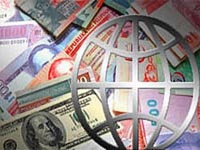Holidaying bankers ask: Is this the end of the crisis?
 Washington/Berlin By this time each year, a somewhat languid mood begins to settle on the world's leading financial capitals.
Washington/Berlin By this time each year, a somewhat languid mood begins to settle on the world's leading financial capitals.
The streets of New York, the City of London, Tokyo and other big business centres empty out as economists, bankers and traders head off on vacation to spend some time trying to size up the next six months.
This year appears to be no exception as they mull over whether the world economy has finally turned the corner and started to shake off its biggest slump in more than 60 years.
But, warned Carsten Brzeski, European economist with the Dutch- owned ING Bank: A recovery never follows a straight line."
Glued to their Blackberries at beaches around the world, the analysts will have picked up on the news that despite a patchy second-quarter earnings season, key indicators are continuing to point to the recession loosening its grip on the global economy.
Indeed, entering the second half of 2009, the international economy appears to be shifting into the second phase of its deep downturn: Growth is starting to show signs of coming around, but jobs are being shed in increasingly massive numbers.
Moreover, signs that the recession is starting to weigh on the labour market, combined with the growing threat of deflation in parts of the world, could place the recovery at risk.
Nouriel Roubini, an economics professor at New York University, warned of a "perfect storm" developing as governments plunge head- first into massive budget deficits to save their economies.
"It's a storm that could blow the recovering world economy back into a double-dip recession by late 2010 or 2011," Roubini said. He suggested governments develop clearer "exit strategies" to show they are at least thinking about the long term.
How financial analysts decide global economic developments are shaping up is likely to be crucial for financial markets in the coming months.
The end of the holiday season could be a nerve-wracking time for investors. After all, their return from summer vacation has in the past heralded some dramatic upheavals in global markets, including big swings in shares and currencies.
The latest financial crisis began with the collapse of banking giant Lehman Brothers in September. But after triggering an economic firestorm that swept across the world economy, the United States is leading the global signs of a tepid recovery.
The US economy shrank only 1 in the second quarter of 2009, according to a preliminary government estimate Friday, after a revised 6.4-per-cent slide in the first three months. Most analysts believe the world's largest economy will pull out of a now 19-month recession in the coming months.
Several big Wall Street and European banks this month reported surprising second-quarter profits. Moreover, 10 major US banks have returned about 70 billion dollars in emergency government loans since June, suggesting the financial sector is stabilizing.
Major US stock indices hit 12-year-lows in early March but have since bounced back into positive territory, as a result helping to buoy share markets from Asia, through the Middle East and to Europe.
Wall Street traders broke into song last week as the Dow Jones Industrial Average topped the 9,000-point mark for the first time since January.
Japan, the world's second-largest economy and one of its worst hit, saw industrial production increase for the fourth month in a row in June. Output in the Asian powerhouse jumped year-on-year by 9 per cent in the second quarter.
This also coincided with signs that central banks chiefs from around the world are not in any rush to begin raising interest rates, a move that could choke the recovery before it really gets going.
Yet out on Main Street, the average citizen in leading economies continues to struggle.
Data released Friday showed unemployment in the 16-member eurozone edging up to a 10-year-high of 9.4 per cent, while joblessness in Japan hit a six-year high of 5.4 per cent. Unemployment in the United States rose to 9.5 per cent in June, its highest level in more than a quarter century.
The labour market is typically the last to recover in an economic downturn, but the disconnect is putting many politicians in an uncomfortable position.
"We may be seeing the beginning of the end of the recession. But that's little comfort for all the folks who lost their job," US President Barack Obama said this week. "We know the tough times aren't over."
Obama has faced mounting pressure to do more to stem the job losses, with some legislators and economists calling for more public spending. Others are terrified of a federal deficit that is already set to reach 1.8 trillion dollars this year.
Even if there are some signs of the US and Europe coming around, their decline over the last year is already shifting the global balance. Emerging economies are gaining greater clout, strengthening their role as key drivers of global economic growth.
China has held up relatively well in the global recession with the International Monetary Fund expecting the nation's economy to grow at 7.5 per cent this year.
So as it turns out, the vacation period might not have been quite as restful as many financial analysts had hoped. (dpa)